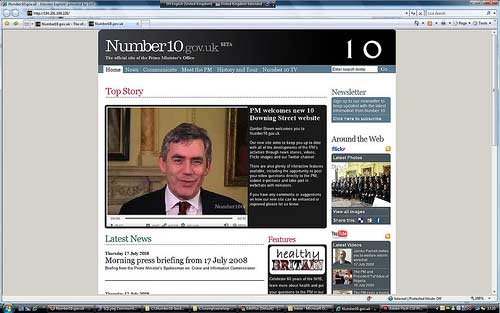 Crime mapping is front-page news today (in the Telegraph anyway). Most of the stories follow a predictable pattern: Ministers say it will inform the public, and make the police more accountable, but it’ll lead to house price chaos. Etcetera.
Crime mapping is front-page news today (in the Telegraph anyway). Most of the stories follow a predictable pattern: Ministers say it will inform the public, and make the police more accountable, but it’ll lead to house price chaos. Etcetera.
But I’m finding myself infuriated by the Telegraph leader column which proclaims:
The Conservative Party has appeared a little paranoid over the past year or two with its reluctance to set out detailed policies for fear of them being plagiarised by Labour. […] The latest was yesterday’s commitment from Jacqui Smith, the Home Secretary, to publish crime maps for England and Wales by the end of this year. This is based on the Conservative Party policy document Giving the Public a Crime Map (PDF), which was published in April and which formed a key plank of Boris Johnson’s successful campaign for the mayoralty of London.
So.. did Boris Johnson cook up the idea, all by himself? Hardly.
The project which first brought the idea to prominence was pioneering geek-journalist Adrian Holovaty’s ChicagoCrime.org, launched back in May 2005. It received global media coverage, on the web and in print; and was specifically mentioned as a case study in this government’s Power Of Information review, published in April 2007. (The project has since evolved into Everyblock.)
Further, two UK pilot studies are being quoted in news coverage today. DNS records show that MyNeighbourhood.Info, run by West Midlands Police, was conceived as far back as 10 May 2006; the site itself was launched in September 2007. The West Yorkshire site, beatcrime.info, traces back as far as April 2004, with a launch in February 2005. (Incidentally… do those dates provide a clue as to the lead time needed to produce these sites?)
So by all means, we can have pointless arguments about which UK political party first stole the idea from Adrian Holovaty if you like. It won’t get us anywhere. The point is, this is an idea whose time has come.
The luxury of opposition is that you can throw ideas around, without having to actually implementing them. The burden of government is that you have to overcome the technical, legal and procedural hurdles to get the things out the door. And we’ve got ample evidence that this is happening already.


